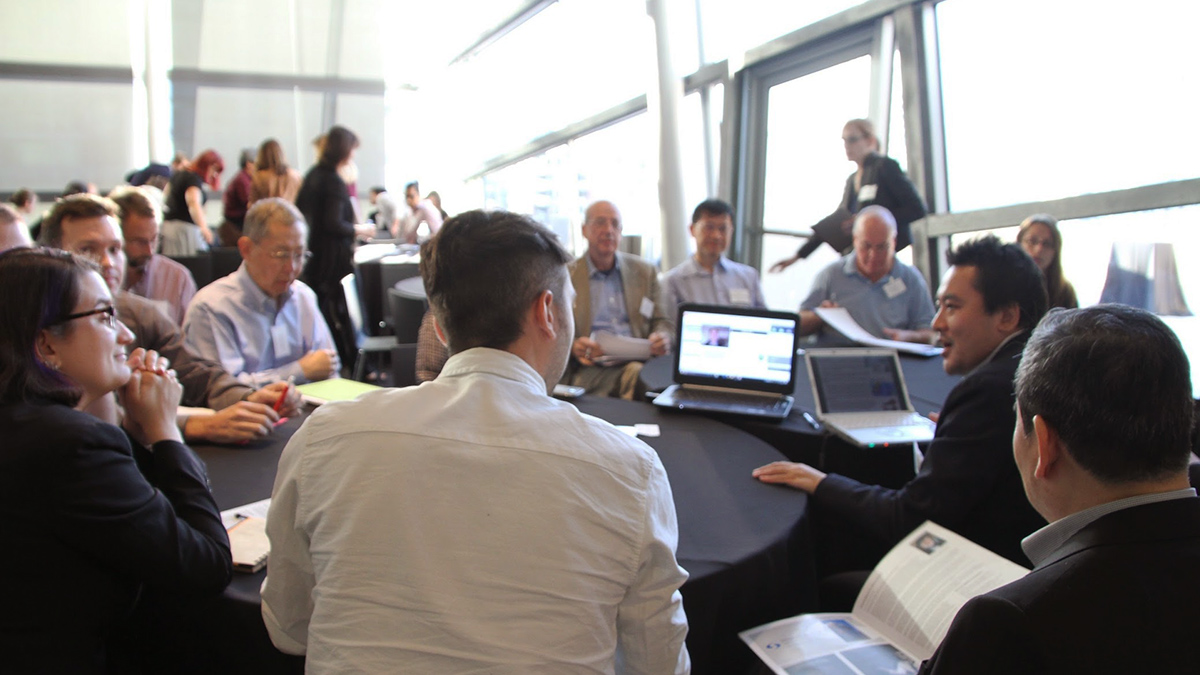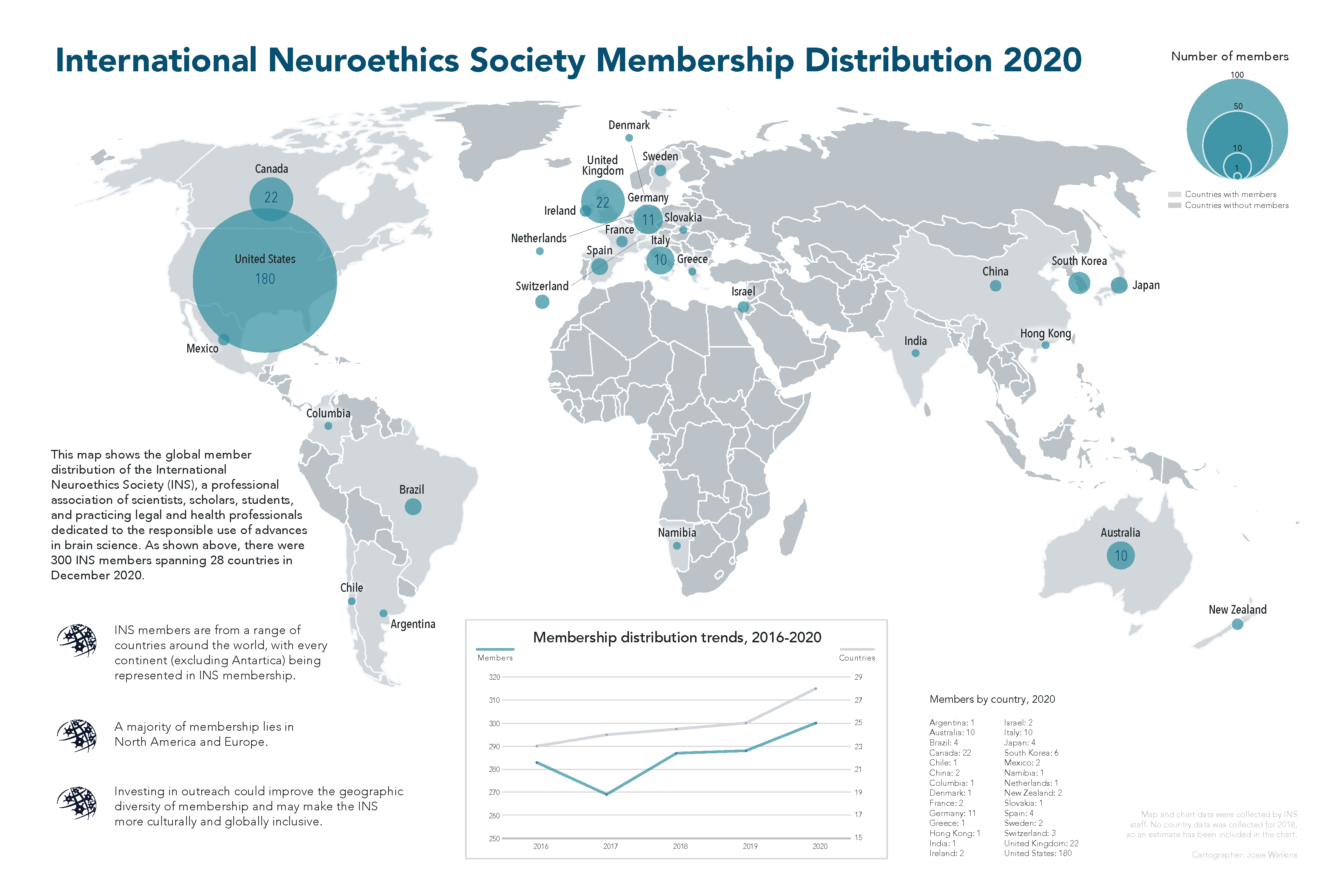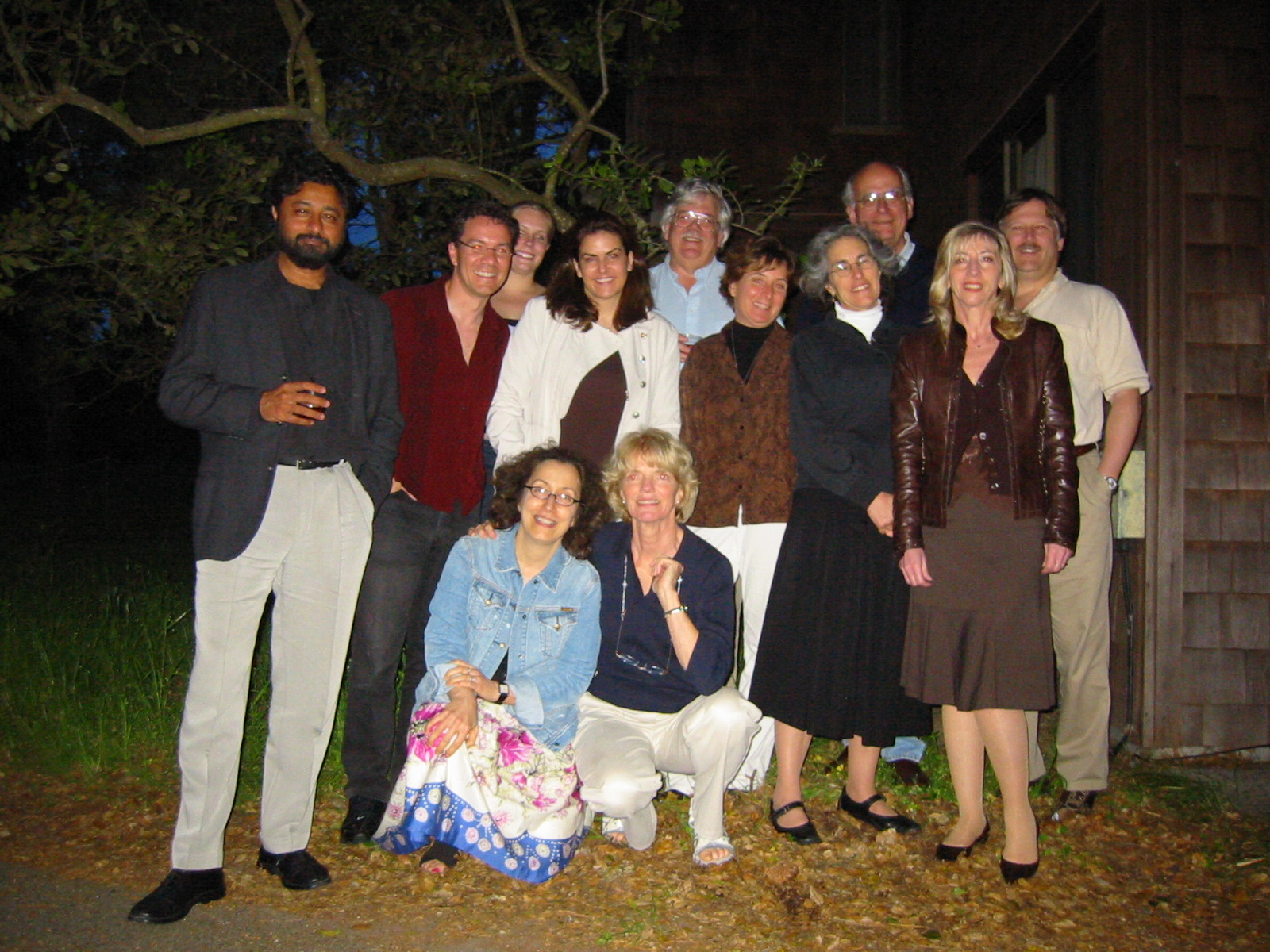International Neuroethics Society We are a group of scholars, scientists, clinicians and other professionals who share an interest in the social, legal, ethical and policy implications of advances in neuroscience. In recent years we have seen unprecedented progress in the basic sciences of mind and brain and in the treatment of psychiatric and neurologic disorders. Now, neuroscience plays an expanding role in human life beyond the research lab and clinic. In classrooms, courtrooms, offices and homes around the world, neuroscience is giving us powerful new tools for achieving our goals and prompting a new understanding of ourselves as social, moral and spiritual beings. MissionThe mission of the International Neuroethics Society is to encourage and inspire research and dialogue on the responsible use of advances in brain science. To accomplish our mission we:
Provide feedback on our mission statement and objectives by completing this questionnaire. QuestionnaireLeadershipThe INS Board of Directors consists of 15 members who are leaders in the field of neuroethics. Members serve 3-year terms with turnover coinciding with the annual meeting. Much of the work of the Society is conducted by the committees, task forces, and staff. MembershipThis map shows the global member distribution of the Society's memberships in December 2020, which included 300 members spanning 28 countries. 
Chart data wes collected by INS staff. No country data was collected for 2018, so an estimate has been used in the trends chart. Map created by Josie Watkins. Large format PDF. ReportsAnnual reportAnnual Meeting
Terms of ReferenceAdopted by the Board in August 2017 and most recently updated June 2023, the Governance Terms of Reference formally define the responsibilities, scope, and procedures of the Society. HistoryThe decision to start a neuroethics society came out of a small meeting held in Asilomar, California in May 2006. Until that time, people interested in neuroethics only interacted through the occasional meeting or conference symposium. The group decided that an organization was needed to promote sustained interaction, learning and critical discussion that will strengthen our field. They also felt it would help draw new people with a range of expertise into neuroethics, a critical next step for continued progress in the field. 
Society founders in 2006: Turhan Canli, Anjan Chatterjee, Pat Churchland, Martha Farah, Mike Gazzaniga, Hank Greely, Judy Illes, Steve Hyman (not pictured), Allyson Mackey, Elizabeth Phelps, Barbara Sahakian, Paul Wolpe, and Laurie Zoloth |
